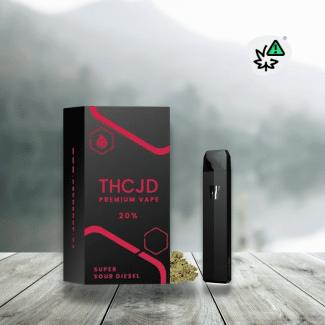
CBD , or cannabidiol, is increasingly recognized for its potential therapeutic benefits. Used to relieve a variety of symptoms, from anxiety to neuropathic pain, CBD is also gaining popularity as a natural alternative for managing various conditions. However, its interaction with other medications, including oral contraceptives, raises important questions for users.
Understanding How Oral Contraceptives Work
Oral contraceptives, essential for preventing unwanted pregnancies, work primarily by inhibiting ovulation and changing cervical mucus to prevent fertilization. These include several types, ranging from combination pills to monophasic or triphasic formulations, tailored to women's physiological needs while minimizing side effects.
Common Varieties of Oral Contraceptives
- Ortho Tri-Cyclen : This triphasic pill varies hormonal levels over a 28-day cycle, providing tailored adaptation.
- Valette : Monophasic contraceptive with drospirenone, known to reduce water retention and regulate daily hormonal intake.
- Diane-35 : Used for severe acne and hirsutism, this pill combines ethinyl estradiol and cyproterone acetate to balance hormones.
- Yasminelle : Similar to Valette, but with a lower dosage of estrogen, thus reducing vascular risks.
CBD and Its Impact on Drug Metabolism
Studies indicate that CBD may influence drug metabolism by acting on liver enzymes, including cytochrome P450. These enzymes play a crucial role in breaking down the active substances in birth control pills. By modifying their activity, CBD can potentially alter blood levels of hormones, thereby impacting contraceptive effectiveness.
Risks and Consequences of the Interaction between CBD and Contraceptives
A significant interaction could reduce the effectiveness of contraceptives, increasing the risk of unwanted pregnancy, disrupting the menstrual cycle, or causing unscheduled bleeding. Induced hormonal fluctuations can also intensify side effects.
Precautions and Advice for Users
Faced with scientific uncertainty, it is crucial for women using CBD and oral contraceptives together to consult their doctor. It is also important to source CBD from trusted sources to ensure product purity and suitability.
Future Perspectives on the Interaction of CBD and Contraceptives
While the research is still embryonic, future studies are needed to precisely define how CBD affects the effectiveness of oral contraceptives. This research could clarify the interaction mechanisms and help adjust recommendations for the safe use of these combination products.
In conclusion, although CBD offers potential health benefits, its interaction with oral contraceptives requires caution and careful research. Users should be well informed and supported by medical advice to navigate the benefits and risks of their combination therapy regimen.















